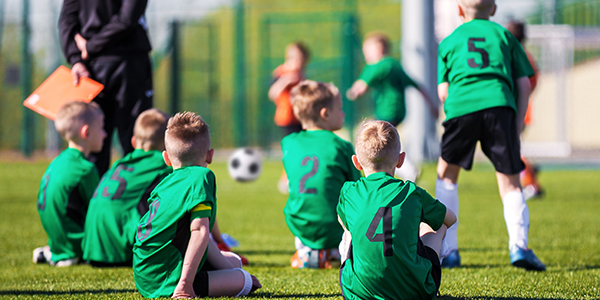
How to Gain Self-Control
Pop quiz: When parents and coaches witness an “Are you kidding me?” call from the ref, do you:
A. Shout “Boo” and jump up and down? Or..
B. Say nothing, and understand that bad calls are just part of the game.
Of course, you know you’re supposed to choose “B,” but sometimes your emotions get the best of you. You’re only human.
Children will respond to a situation based on what they have witnessed. They will likely forget the lecture on good sportsmanship, but remember the game when you really let the umpire have it. They will forget the lesson on “turning the other cheek” but remember the time you didn’t.
For example, you’re at the ballpark and your child strikes out at the plate on a questionable call from the ump. How do you react?
“WHAT! That was outside all the way! Call them both ways!” Two innings later, your child slides into home plate on a close play. It’s obvious to anyone in the stands that the ump’s call was correct, and your child was clearly tagged out. Your child kicks the dirt and yells “Are you blind? I was safe!” Embarrassed? You should be. Your child’s behavior is a direct result of your behavior. While some parents have no problem exhibiting self-control on the sidelines, others struggle to maintain composure.
Inappropriate crowd behavior has become such a problem that some districts have enacted “zero tolerance” policies regarding spectators — and for good reason. Over the past two years, four instances of fan violence against referees or other spectators have caused serious injury, or even death.
It should be an easy fix, but unfortunately it’s not. Athletic contests, even at the Pee Wee level, are typically highly-charged and emotional events, and things can quickly get out of hand. Legendary Indiana University Coach Bob Knight, known for his inappropriate and over-the-top antics, said “The other team is not your biggest opponent. Human nature is.” How true.
Sometimes, parents take a step over the fine line between school spirit and sideline slurs. Here are some tips to ensure you are calm, cool and collected on the sidelines. Keep in mind:
If you’re under control, your young athlete is more likely to perform better and feel more confident.
- Always exhibit good sportsmanship. Offer general and positive words of encouragement to your players, as well as opposing teams. This teaches your young athlete that it’s okay to compliment an opposing player on an exceptional play. Leave the specific and instructional directives to the coach.
- Avoid “bad call” comments! It’s a given that there will be questionable calls. Referees and umps are not perfect. Yes, your child might have been the recipient of one of those bad calls, but life (and the game) goes on! If your child witnesses self-control from you and his or her coaches, he or she will respond to a stressful situation in the same manner.
- Count to 10! Give yourself time to think about what you say before you say it. Everything you do or say reflects on your young athlete, and his or her team. Cody, a 13-year-old basketball player from Ohio, actually quit the sport he loved because of the embarrassment and harassment he suffered due to his father’s sideline behavior. “My dad actually got thrown out of a game once because he was so mean to the refs,” Cody said. “All my friends would yell at me because my dad was always yelling at them if they missed a basket. It caused me so many problems I didn’t even want to play the next year.”
- Focus on the positives, and teach through the negatives. Ensure your child’s sporting career is a positive one by being a constant source of support. If your child has a bad game, talk about it, but don’t dwell on it. 5. Don’t live vicariously through your children. In other words, you’ve already had your childhood, so let your children enjoy theirs. Seventy-five percent of kids drop out of sports by the time they turn 13. Most often, it’s because they’re simply not having fun anymore. Don’t be the reason kids turn their back on something they love.
Related Sports Psychology Articles
- Teach Sports Kids To Focus on What They Can Control
- Dealing with Outbursts in Youth Sports
- Helping Young Athletes Stay Calm
*Subscribe to The Ultimate Sports Parent Podcast
*Subscribe to Peak Performance Sports on Youtube
Download a free sports psychology report to improve your mental game!
Sports Psychology Coaching for Young Athletes

One-on-one mental performance coaching is the fastest and most effective method to improve your athletes’ mental game, boost their performance, and make lasting changes. And as a bonus, parents learn what to say to help young athletes feel confident and thrive in sports. Please call us at 888-742-7225 with your questions.
